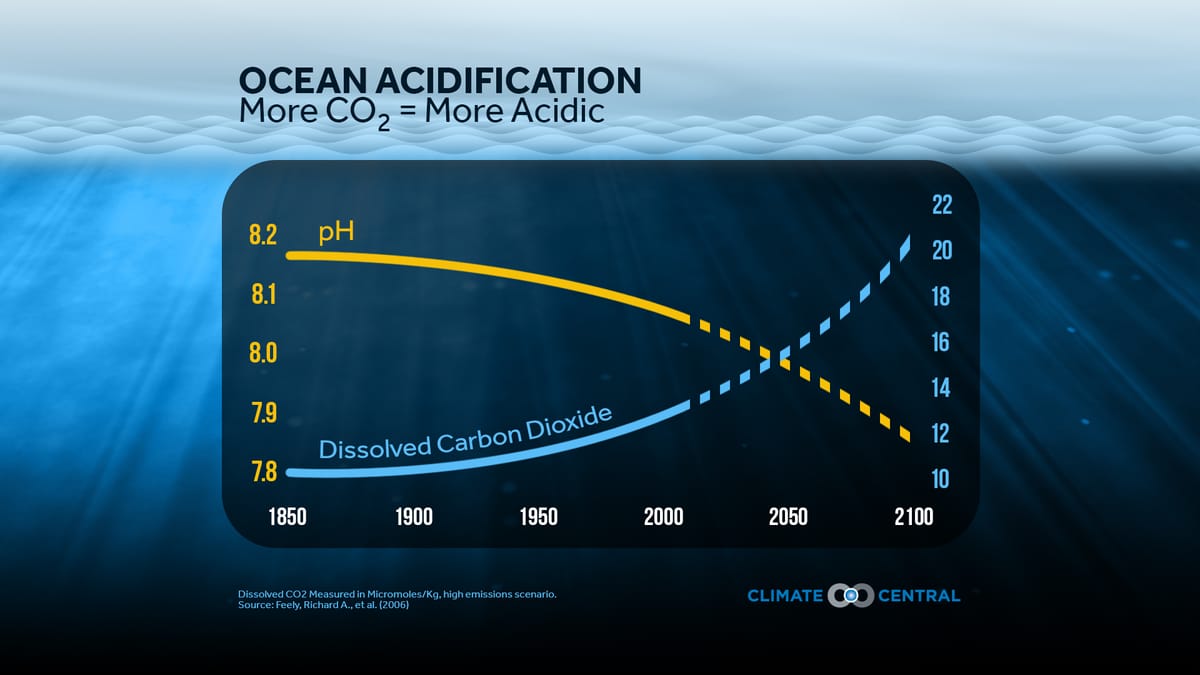Our Ocean is Crying Out - Why Young Voices Must Fight Ocean Acidification

A coral reef is like a skyscraper built on fragile bricks. But today, those bricks are dissolving. Scientists found that coral shells are now up to 76% thinner than they were just 150 years ago (BBC, Ocean Acidification: The Climate Crisis’s “Evil Twin”). Watching this unfold, I realized that the ocean is collapsing quietly, and too few people are paying attention.
Ocean acidification, driven by rising CO₂ levels, has already dropped ocean pH from 8.2 to 8.05 since the Industrial Revolution - a 40% increase in acidity. That shift sounds small, but its effects are massive: corals are crumbling, oysters in Washington hatcheries can’t form shells, and tiny creatures like pteropods, the “potato chips of the sea” that salmon and seabirds depend on, are dissolving away. If these foundations collapse, entire marine ecosystems, and the people who rely on them, collapse too.
And it’s not just about marine life. According to the NOAA article Ocean Acidification, nearly 40% of the world’s population relies on seafood as a major source of protein. Millions of livelihoods from Peruvian scallop farmers to Indigenous communities in Alaska are now at risk. Losing coral reefs also means losing natural storm barriers that protect coastal cities from devastating floods.
This isn’t a distant issue. It’s happening now, and it’s happening fast.
As young people, we can’t let this story stay hidden beneath the waves. We must demand bold climate action: cutting CO₂ emissions, restoring seagrass and mangroves, reducing overfishing, and supporting policies that hold polluters accountable.
🌍 Protect Our Reefs. Save the Mangroves. Defend Our Seas.
Because if we don’t act now, future generations may only learn about coral reefs in history lessons, not in real life.
Sources:
1) BBC News. (2023). Ocean Acidification: The Climate Crisis’s “Evil Twin”.
2) NOAA. (n.d.). Ocean Acidification. National Oceanic and Atmospheric Administration.
By Team Action For World
Comments ()